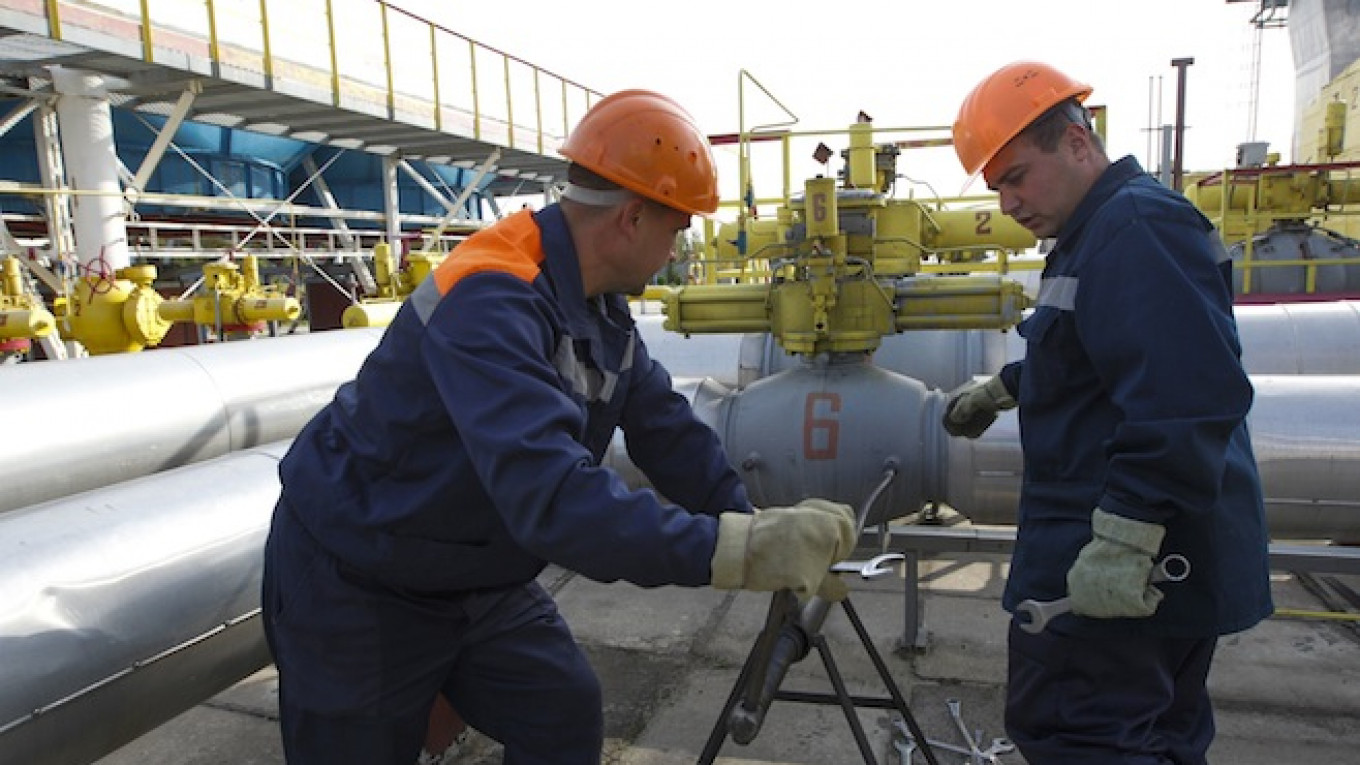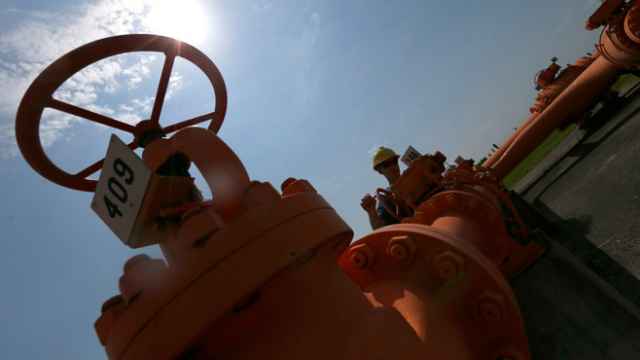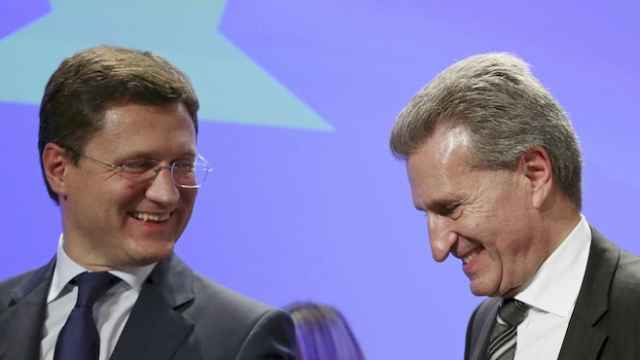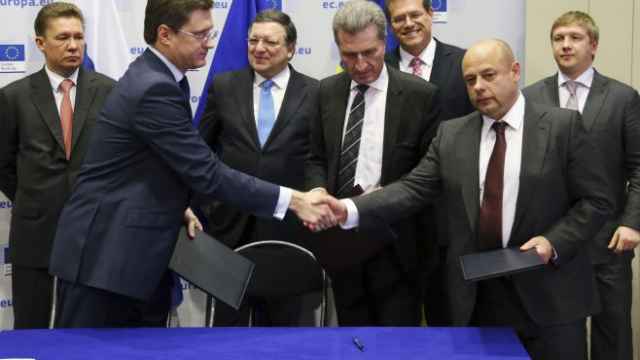Russia could resume natural gas deliveries to Ukraine as soon as next week if Kiev pays $2.2 billion in debt and prepayments, gas exporter Gazprom said Friday, under a deal that also safeguards winter deliveries to Europe.
Moscow, Kiev and the European Union reached an agreement on Thursday over the gas supplies despite tensions over a pro-Russian separatist rebellion in east Ukraine.
Gazprom cut off Ukraine in June amid a bitter dispute over unpaid bills and pricing for the former Soviet republic, which is seeking closer ties with the West.
Gazprom CEO Alexei Miller said Gazprom would restart the flow of gas within two days of Kiev covering part of its debt and pre-paying for deliveries in November.
"Everything depends on when Ukraine makes this payment. We understand this can happen by the end of next week," Miller told Russian state television broadcaster Rossiya 24.
The Kremlin on Friday welcomed the deal as "an important step in the context of ensuring further uninterrupted gas transit to Europe."
The EU receives about a third of its gas from Russia and about half of that is piped across Ukraine.
Speaking in Kiev, Ukraine Prime Minister Arseniy Yatsenyuk said he was determined to ensure safe transit to the EU, a crucial partner for Kiev in dealing with Russia over the rebellion in the east and a creditor of Ukraine's bankrupt economy.
"Ukraine will safeguard the transit and ... won't give Russia a chance to blackmail Ukraine and Europe," Yatsenyuk said.
Thursday's agreement covers November through next March and calls for Ukraine to pay $1.45 billion. Miller put the prepayment portion of that at $760 million.
Kiev must also pay off $3.1 billion for past deliveries by the end of the year, or supplies will cease from 2015, according to the protocol from Thursday's talks in Brussels published by the Ukrainian government on Friday.
Gazprom, in turn, will refrain from using a contractual "take-or-pay" clause until the end of March. The clause requires Ukraine to pay fines if it takes less gas than specified in the long-term contract.
The deal allows Ukraine to tap funds from existing financial aid schemes provided by the EU and the International Monetary Fund. Kiev says it has put aside resources to cover its debts.
A spokeswoman for the European Commission said Ukraine would be able to pay over the winter by drawing on 760 million euros ($950 million) in existing EU loan facilities and an existing $1.4-billion IMF facility.
It will also be able to use its own income from selling gas and from pipeline transit fees paid by Russia.
Responding to suggestions that the EU gave in to pressure from both Moscow and Kiev to make additional financial commitments, the spokeswoman said: "The EU is not paying additional money to help Ukraine pay its gas bills.
"The EU is not giving any guarantee to the Russian side in case Ukraine says 'we cannot order x amount of gas' or 'we cannot pay'," she said.
Winter Supplies
Gazprom's Miller said maximum daily supplies amounted to 114 million cubic meters under the deal to supply 2 billion cubic meters per month in November and December.
Ukraine will pay $378 per 1,000 cubic meters for gas in 2014 and $365 in the first quarter of next year.
Russia says each price reflects a discount of $100 from those under previous agreements. Miller added he expected the Russian government to approve it formally on Saturday.
Kiev said documents signed in Brussels included guarantees by the European Commission of financial support to Ukraine should Russia renege on the agreed prices as well as a promise of support from Brussels for increasing gas flows to Ukraine from EU states.
Ties between Kiev and Moscow are strained over Russia's annexation of Ukraine's Crimea region in March and the pro-Russian separatist rebellion in eastern Ukraine where more than 3,700 people have died this year.
The agreement also leaves up to an arbitration court in Stockholm to rule on whether Ukraine's gas debt should be $3.1 billion, an amount Kiev which has already put in escrow, or the $5.3 billion being sought by Gazprom.
A Message from The Moscow Times:
Dear readers,
We are facing unprecedented challenges. Russia's Prosecutor General's Office has designated The Moscow Times as an "undesirable" organization, criminalizing our work and putting our staff at risk of prosecution. This follows our earlier unjust labeling as a "foreign agent."
These actions are direct attempts to silence independent journalism in Russia. The authorities claim our work "discredits the decisions of the Russian leadership." We see things differently: we strive to provide accurate, unbiased reporting on Russia.
We, the journalists of The Moscow Times, refuse to be silenced. But to continue our work, we need your help.
Your support, no matter how small, makes a world of difference. If you can, please support us monthly starting from just $2. It's quick to set up, and every contribution makes a significant impact.
By supporting The Moscow Times, you're defending open, independent journalism in the face of repression. Thank you for standing with us.
Remind me later.






